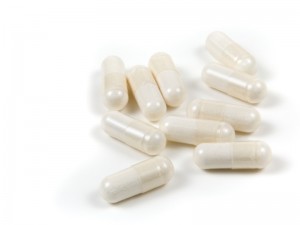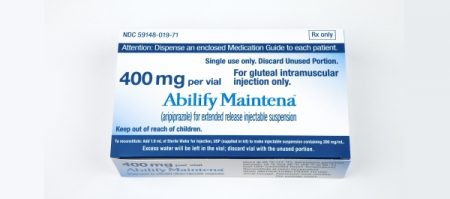Lithium is a Lifesaver in Bipolar Disorder
Batya Swift Yasgur MA, LSW reported in Medscape Medical News on November 28, 2022 that “Mood stabilizers protect against suicide and all-cause mortality in patients with bipolar disorder (BD), including natural mortality, with lithium emerging as the most protective agent, new research suggests.
Investigators led by Pao-Huan Chen, MD, of the Department of Psychiatry, Taipei Medical University Hospital, Taiwan, evaluated the association between the use of mood stabilizers and the risks for all-cause mortality, suicide, and natural mortality in over 25,000 patients with BD and found that those with BD had higher mortality.
However, they also found that patients with BD had a significantly decreased adjusted 5-year risk of dying from any cause, suicide, and natural causes. Lithium was associated with the largest risk reduction compared with the other mood stabilizers.“
Preventing Illness in the Offspring of a Parent with Bipolar Disorder
A 2018 article by researcher Robert Freedman and colleagues in the American Journal of Psychiatry reported that prenatal nutritional supplements can reduce mental illness in at-risk offspring. The article made a good case for supplementation with folate, phosphatidylcholine, and vitamins A and D.
Here we describe some additional ways to minimize risk of mental illness in children who are at risk for bipolar disorder or other mental illnesses.
Some efforts at prevention can begin even before a child is conceived. Avoiding smoking or drinking alcohol and maintaining a nutritious diet to prevent inflammation and excessive weight gain before conception could reduce adverse epigenetic effects on the offspring. Epigenetics refers to environmental influences on gene transcription. The impact of life experiences such as a mother or father’s substance use is not registered in their child’s DNA sequence, but can influence the structure of the child’s DNA or its packaging.
Maternal good health and wellbeing during pregnancy has also been shown to improve neonatal health and functioning.
Once a child is born, they can be encouraged in healthy habits, including a nutritious diet, good sleeping habits, regular vigorous exercise, and mindfulness/meditation training (which pediatric psychiatrist James Hudziak has suggested should be universal).
For a child who is beginning to develop mood or behavioral symptoms, more intensive intervention may be prudent. Research supports the effectiveness of family interventions such as family-focused therapy (FFT) for youth with depression, cyclothymia, or bipolar disorder not otherwise specified (BP-NOS) and a family history of bipolar disorder. Researcher David J. Miklowitz described the effects of this intervention in a 2013 article in the Journal of the American Academy of Child and Adolescent Psychiatry.
Depression in children 3 to 6 years of age is as common as depression in older children (with rates around 1–2%), and robust improvements have been observed when families engage in parent child interaction therapy (PCIT) with a focus on emotional development. In PCIT, parents are coached while interacting with their children and encouraged to establish warm interactions while setting appropriate limits. In a study by Joan L. Luby and colleagues published in the American Journal of Psychiatry in 2018, using PCIT modified to include an emotional development component improved depression and associated symptoms in children aged 3 to 11, and it also improved mothers’ mood and behavior. Read more
Lithium Treatment Lowers Suicide Rate in People with Bipolar Disorder
A large study that made use of a Swedish health database has shown that lithium reduces suicide rates in bipolar disorder. The study by researcher Jie Song and colleagues was published in the American Journal of Psychiatry in 2017.
The study included eight years of data from 51,535 people with bipolar disorder. During that time, there were 10,648 suicide-related events recorded, such as suicide attempts or completed suicides. The researchers compared suicide rates when patients were taking lithium to rates when they were off the drug, and found that lithium reduced attempted or completed suicide by 14%. Song and colleagues also looked at suicide rates for people taking valproate, and found that these were no better than when patients were off valproate, implying that treatment alone is not enough to reduce the suicide rate and the benefit is specific to lithium use.
Song and colleagues estimate that 12% of the suicide-related events among the patients included in the study might have been avoided if the patients had taken lithium for the entire study period. While there are other clinical considerations to make when selecting an appropriate treatment for a given patient, the researchers suggest that lithium treatment should be considered for patients with bipolar disorder who have expressed suicidal intentions or who are otherwise at risk for suicide.
In Danish Study, Higher Trace Levels of Lithium in Drinking Water in Certain Regions Do Not Seem to Prevent Bipolar Disorder
Previous studies have found that trace levels of lithium that occur naturally in the drinking water of certain regions are associated with lower rates suicide. Preliminary studies have also shown that lithium in drinking water is associated with lower dementia rates. The trace levels seen in drinking water are many hundreds of times lower than clinical doses of lithium prescribed for bipolar disorder, but they vary greatly according to locality.
A new study by researcher Lars Kessing and colleagues investigated whether chronic exposure to lithium in drinking water might protect against bipolar disorder, but found no evidence that this is the case in Denmark.
In an article published in the journal Bipolar Disorders in 2017, Kessing and colleagues describe findings from their analysis of data on 14,820 patients with a diagnosis of mania or bipolar disorder and (for each participant with bipolar disorder) 10 other age- and gender-matched control participants totaling 140,311. The researchers were able to look longitudinally at the participants’ exposure to trace levels of lithium in drinking water based on their municipalities of residence.
The investigators hoped to find evidence that greater exposure to lithium was associated with lower rates of bipolar disorder. Kessing and colleagues concluded that trace lithium levels higher than those in Denmark might be needed to find such a result.
Editor’s Note: Clinical studies of lithium treatment for children at high risk for bipolar disorder could help clarify whether even conventional therapeutic levels of lithium could reduce or delay the appearance of bipolar disorder.
Naturally Occurring Lithium in Texas Drinking Water Reduced Alzheimer’s Mortality Rates
Several studies have found that trace levels of lithium that naturally occur in the drinking water of certain regions are associated with reductions in dementia compared to regions with less lithium in the water. The latest such study found that higher trace levels of lithium in certain Texas counties were associated with less mortality from Alzheimer’s disease compared to Texas counties with lower levels of lithium in the water.
The research by Val Andrew Fajardo and colleagues was published in the Journal of Alzheimer’s Disease in 2017. Fajardo’s team obtained 6,180 water samples from 234 of Texas’ 254 counties. They also calculated that there was an increase in the Alzheimer’s mortality rate from the period 2000–2006 to the period 2009–2015. However, regions with higher trace levels of lithium were negatively correlated with this increase, suggesting that the lithium in the water had a protective effect on people in those counties.
The researchers controlled for gender, race, education, rural living, and air pollution. Physical inactivity, obesity, and type 2 diabetes seemed to be confounding factors. Obesity and type 2 diabetes were positively correlated with Alzheimer’s mortality and negatively correlated with lithium levels in drinking water, meaning that it is possible that lithium also protects against these conditions.
Lithium in Drinking Water May Reduce Dementia
New research suggests that higher trace levels of lithium in drinking water can reduce dementia rates in the general population. In a 2017 article in the Archives of General Psychiatry, researcher Lars Kessing and colleagues compared data on 73,731 patients in Denmark with a diagnosis of dementia to 733,653 control participants without this diagnosis between the years 1970 and 2013. They were able to match the data to recorded levels of trace lithium in the drinking water in participants’ municipalities of residence.
Lithium levels in the water ranged from 0.6 micrograms per liter to 30.7 micrograms per liter in 151 different locations throughout Denmark. Compared to those exposed to 2.0 to 5.0 micrograms of lithium per liter of water, those exposed to more than 15.0 micrograms per liter had a lower incidence rate of dementia. However, those exposed to 5.1 to 10.0 micrograms per liter had a higher incidence of dementia. The same relationship was also found between lithium exposure levels and both Alzheimer’s disease and vascular dementia.
The lithium levels in the water were approximately 10,000 to 300 times lower than typical clinical doses (typically 900–1500mg/day, which produce concentrations ranging from 0.6 to 1.2 meq/L in patients’ blood). The minute exposures to lithium in the drinking water occurred over decades in the Danish study, and suggest that there may be long-term positive effects to chronic lifetime exposure to very low lithium levels.
These data follow others regarding exposure to trace lithium. In 2011, researcher Orestes V. Forlenza and colleagues reported in the British Journal of Psychiatry that low dose lithium (150–600mg/day) over a period of one year decreased the progression of mild cognitive impairment compared to placebo, while researcher Marielza Andrade Nunes and colleagues reported in the journal Current Alzheimer’s Research in 2013 that an even smaller dose (0.3mg/day) over a period of 15 months slowed the progression of Alzheimer’s dementia. Thus, low or microscopic doses consumed over long periods could slow cognitive deterioration.
Even Light Exercise Prevents Future Depressions
A 2017 article in The American Journal of Psychiatry suggests that regular leisure-time exercise of any intensity can protect against future depressions.
The study by Samuel B. Harvey and colleagues followed a group of 33,908 healthy adults for 11 years. The researchers found a link between regular leisure-time exercise and reduced incidence of future depression (but not anxiety). This link occurred regardless of the intensity of the exercise, and most of the effect occurred at low levels of exercise. Analysis suggested that 12% of future cases of depression could be prevented if all participants fit one hour of physical activity into their week.
A small part of the benefit came from the social and physical health benefits of exercise.
Harvey and colleagues suggested that from a public health perspective, increasing population levels of exercise modestly could lead to a substantial decrease in depressions.
Editor’s Note: Alongside maintenance treatment, in the form of antidepressants for unipolar depression or mood stabilizers and atypical antipsychotics for bipolar disorder, exercise could provide some benefits in preventing future depressions.
FDA Approves Extended-Release Aripiprazole Injected Monthly to Prevent Manic and Mixed Episodes in Bipolar I
In 2017 the US Food and Drug Administration approved a monthly injectable form of the atypical antipsychotic drug aripiprazole, Abilify Maintena, for the prevention of manic and mixed episodes in bipolar I disorder. The intramuscular injections are available for monotherapy in preparations of 300 mg or 400 mg. Maintena did not prevent depressive episodes.
Maintena is already FDA-approved for the treatment of schizophrenia and Tourette’s syndrome in adults.
The approval for bipolar I disorder follows a 52-week phase 3, double-blind, placebo-controlled randomized trial. Participants were experiencing a manic episode during screening for the study, met the criteria for bipolar I disorder, and had had at least one prior manic or mixed episode severe enough to require treatment.
Compared to placebo, Maintena in once-a-month injections delayed the recurrence of any mood episode following the initial manic episode at screening. When the researchers separated their analysis based on type of episode, Maintena reduced manic and mixed episodes compared to placebo, but did not do a better job than placebo at preventing depressive episodes.
An oral antipsychotic must be administered for 14 days following the first injection of Maintena. The extended-release injection is available as 300 mg– or 400 mg–strength powder that may be reconstituted, or as prefilled syringes.
Editor’s Note: Because Maintena is delivered as a once-a-month injection, it may be helpful for patients who struggle to take daily oral medications.
Untreated Episodes of Bipolar Disorder Worsen Over Time, But Prevention is Possible
A 2017 literature review by researcher Lars V. Kessing and Per K. Andersen in the journal Acta Psychiatrica Scandinavica reports that the greater a patient’s number of previous episodes of bipolar disorder, the more likely that patient is to have a more difficult course of illness and poorer outcomes. The number of episodes was associated with more rapid recurrences, duration and severity of episodes, more automatic episodes (i.e. not triggered by stress), risk of dementia, treatment resistance, lack of recovery between episodes, and brain volume losses.
In an article in the journal Bipolar Disorders in 2016, BNN Editor-in-Chief Robert M. Post described the value of preventive treatment in reducing episodes and protecting the brain from the damage that accompanies them.
Given that episodes, stressors, and bouts of substance abuse can affect the way genes are transcribed via a phenomenon known as epigenetics, preventing these occurrences could lead to an easier course of illness and improved outcomes. Patients should provide their physicians with feedback about their response to prior medications and any side effects they experience over time so that their medication regime can be adjusted until it is maximally effective.
Patients with severe illness and multiple previous episodes may need a complex medication regimen that includes multiple types of medications that target different systems of neurotransmitters.
This philosophy of treatment is presented in several publications, including the 2008 book Treatment of Bipolar Illness: A Casebook for Clinicians and Patients by Post and Gabrielle Leverich, and more recently in the article “Treatment of Bipolar Depression: Evolving Recommendations” in the journal Psychiatric Clinics of North America. An open access article by Post, “New Perspectives on the Course and Treatment of Bipolar Disorders,” published in the journal Edizioni Minerva Medica S.p.A. in 2017, describes the need for early and sometimes complex combination therapy, including the non-intuitive idea that more medications (carefully prescribed) can actually produce fewer side effects than large doses of a single medication.
Another good resource for patients is a daily personal calendar that can be used to track ongoing symptoms, side effects, and response to medications. We offer several types of these calendars free here. My Mood Monitor, or What’s My M3, is a validated screening instrument that can detect depression, anxiety disorders, and mania in response to weekly self-reports. It is available online and as an app, and can be used to track illness course and response to treatment.
Giving Infants Vitamin D Can Reduce Type 1 Diabetes
 A 2001 cohort study in Finland showed that giving vitamin D supplements to infants may reduce their risk for type 1 diabetes. The data for the study, by Elina Hyppönen and colleagues in the journal The Lancet, came from 10,366 people born in 1966. Their mothers were part of a medical registry that collected information on vitamin D given to children during the first year of their lives.
A 2001 cohort study in Finland showed that giving vitamin D supplements to infants may reduce their risk for type 1 diabetes. The data for the study, by Elina Hyppönen and colleagues in the journal The Lancet, came from 10,366 people born in 1966. Their mothers were part of a medical registry that collected information on vitamin D given to children during the first year of their lives.
Of the 10,366 people in Hyppönen’s study, 81 had been diagnosed with type 1 diabetes by the end of 1997. Those participants who were given vitamin D supplements during their first year of life were less likely to be diagnosed with type 1 diabetes than other participants. Those who regularly took the recommended dose at the time, 2000 IU daily, during their first year of life had significantly lower diabetes rates 33 years later.









